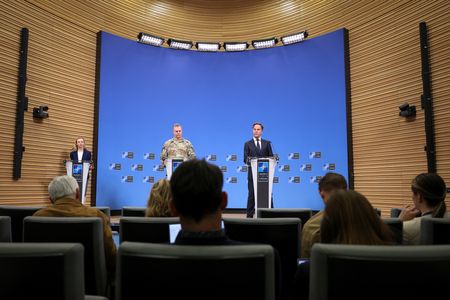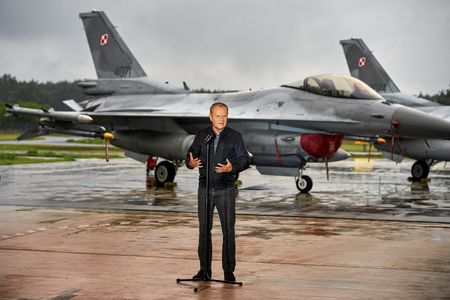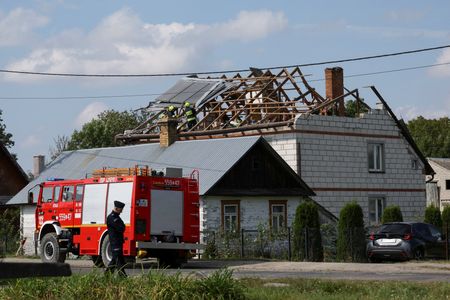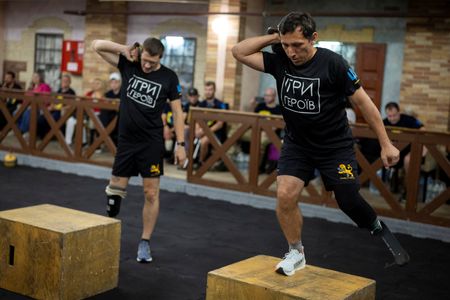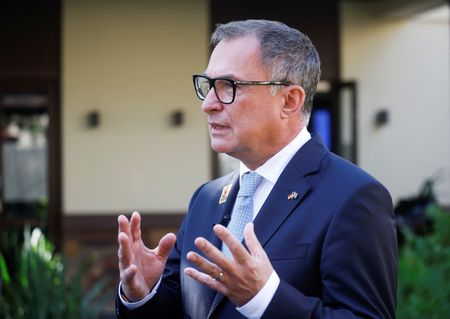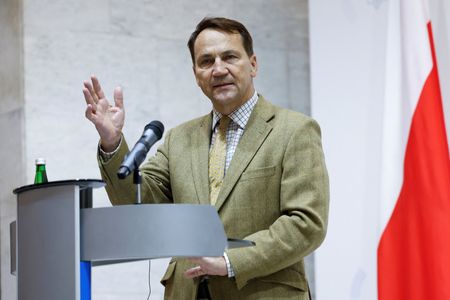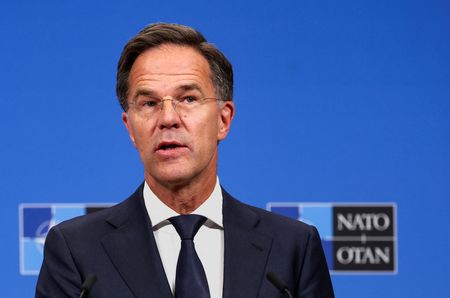By Andrew Gray and Barbara Erling
BRUSSELS/WARSAW (Reuters) – NATO announced plans to beef up the defence of Europe’s eastern flank on Friday, two days after Poland shot down drones that had violated its airspace in the first known action of its kind by a member of the Western alliance during Russia’s war in Ukraine.
Warsaw has portrayed the drone incursions as an attempt by Russia to test the capabilities of Poland and NATO to respond.
Earlier on Friday, it rejected Donald Trump’s suggestion that the incursions could have been a mistake, a rare contradiction of the U.S. president from one of Washington’s closest European allies.
Russia said its forces had been attacking Ukraine at the time of the drone incursions and that it had not intended to hit any targets in Poland.
“It’s reckless and unacceptable. We can’t have Russian drones entering allied airspace,” NATO Secretary-General Mark Rutte told a press conference, announcing operation “Eastern Sentry”.
NUMBER OF ALLIES TO JOIN MISSION
The mission, which begins on Friday evening, will involve a range of assets integrating air and ground bases.
Allies, including Denmark, France, Britain and Germany have so far committed to the mission with others set to join, Rutte said, adding that NATO was still assessing the possible intent behind the incursion.
NATO’s top military official, Supreme Allied Commander Europe Alexus Grynkewich, who is a U.S. Air Force general, said the alliance would defend every inch of its territory.
“Poland and citizens from across the alliance should be assured by our rapid response earlier this week and our significant announcement here today,” Grynkewich told the same press conference at NATO headquarters in Brussels.
Grynkewich said Eastern Sentry was designed as a flexible operation to bolster defences along NATO’s entire eastern flank, which stretches from the Baltic states in the north to Romania and Bulgaria in the south.
NATO already has substantial forces in eastern Europe, including thousands of troops. It did not put a figure on how many additional troops would be involved in the new operation.
Its announcement detailed a modest number of additional military assets – including two F-16 fighter jets and a frigate from Denmark, three Rafale fighter jets from France and four Eurofighter jets from Germany.
Separately, United Nations Security Council was set to meet on Friday at Poland’s request to discuss the incident.
Responding to Trump’s comment on Thursday that the incursion could have been an accident, Polish Prime Minister Donald Tusk responded on X: “We would also wish that the drone attack on Poland was a mistake. But it wasn’t. And we know it.”
Trump said in an interview with Fox News on Friday that his patience with Russian President Vladimir Putin was “sort of running out and running out fast”, but stopped short of threatening new sanctions over the war.
Trump has repeatedly set deadlines for Moscow to agree a ceasefire or face new sanctions, only to row back.
After strong condemnation of Russia by European leaders over the incident, Germany said it had extended air policing over Poland and summoned the Russian ambassador on Friday. France also summoned the Russian envoy to Paris over the incursion.
QUESTIONS ABOUT EUROPEAN DEFENCES
For Polish leaders to directly contradict Trump is almost unheard of and a sign of Europe’s alarm at the U.S. president’s willingness to give weight to Moscow’s account.
Poland has praised Trump for calling for greater European military spending and has been praised in turn by the Trump administration for devoting the largest share of its economy to defence of any NATO ally, including the United States itself.
This week’s incident has raised questions about NATO’s ability to respond to the sort of mass drone attacks – often involving hundreds of unmanned aerial vehicles – that have been a feature of the war in Ukraine following Russia’s 2022 invasion.
European leaders say the incident again shows Moscow has no interest in a peace deal in Ukraine, weeks after Trump hosted Putin in Alaska and dropped a demand that Russia accept an immediate ceasefire.
European officials have been in Washington this week hoping to coordinate sanctions on Russia with the U.S. administration. Announcing such sanctions in tandem was previously standard practice but has not taken place since Trump returned to office.
Kremlin spokesman Dmitry Peskov said on Friday peace negotiations were on pause and that “the Europeans are hindering this” peace process.
Russia and its close ally Belarus began a long-planned joint military exercise on Friday involving drills in both countries and in the Baltic and Barents seas.
Dismissing concerns abroad about the exercise, Peskov said Western European countries were suffering “emotional overload” and that Russia did not pose a threat to them.
(Additional reporting by Pawel Florkiewicz and Anna Koper in Warsaw, Anastasiia Malenko in Kyiv, John Irish and Michel Rose in Paris, Andrea Shalal in Washington, William James and Mark Trevelyan in London, Writing by Timothy Heritage and Gareth Jones, Editing by Peter Graff and Jon Boyle)

